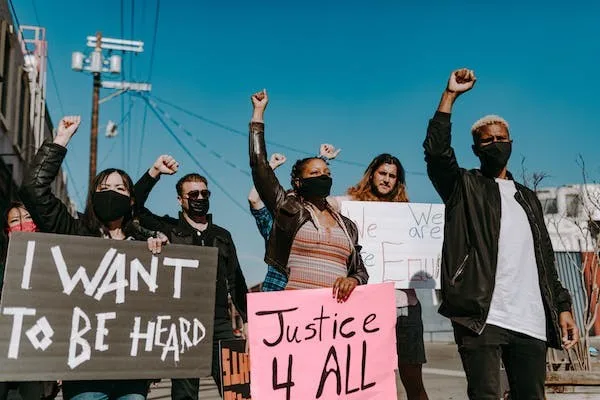The Right to Equality and Justice: A Basic Human Right
Image source: Pexels.com
Everyone deserves to be treated fairly and equally by the law. This is the fundamental right of human being in the eye of law. In this blog post, I will explain what this right means, why it is important, and how we can protect and promote it.
What does this right mean?
The right to equality and justice means that all people are equal before the law and have the same rights and duties under the law. It also means that all people have access to fair and impartial justice, and can seek remedy for any violations of their rights.
This right is recognized as one of the basic human rights in various international documents, such as the Universal Declaration of Human Rights, the International Covenant on Civil and Political Rights, and the International Covenant on Economic, Social and Cultural Rights.
Why is this right important?
This right is important for many reasons. First, it ensures that everyone is respected and valued, and that no one is discriminated or oppressed because of their race, gender, color, ethnicity, religion, disability, or other characteristics. Second, it enables everyone to enjoy their other human rights, such as the right to life, liberty, security, expression, education, health, and so on. Third, it supports a culture of democracy and rule of law, where people can participate in public affairs, hold their leaders accountable, and challenge any abuses of power. Fourth, it fosters social harmony and peace, by preventing and resolving conflicts based on discrimination or oppression.
How can we protect and promote this right?
This right is not always respected or fulfilled in reality. There are many cases where people face discrimination, injustice, corruption, violence, or impunity because of their identity or status. Therefore, we need to take action to protect and promote this right in our society. Here are some ways we can do that:
- Educate ourselves and others about this right and its importance. We can read books, articles, blogs, reports, or watch videos that explain what this right means and why it matters. We can also share this information with our friends, family, colleagues, or online communities.
- Support organizations that work on this right. We can donate money, time, skills, or resources to organizations that defend this right around the world. For example, we can support Amnesty International, Human Rights Watch, Global Voices, Committee to Protect Journalists, or other groups that investigate and report on human rights violations, advocate for legal reforms, provide legal aid or assistance to victims, or campaign for change.
- Speak up and take action when we witness or experience violations of this right. We can report any incidents of discrimination or injustice to the relevant authorities or organizations. We can also join protests, petitions, boycotts, or other forms of activism that demand respect for this right. We can also use our voice and platform to raise awareness and solidarity for this cause.
Conclusion
The right to equality and justice is a vital human right that ensures equality and justice for all people. It is essential for our dignity and freedom as well as for our democracy and peace. We need to protect and promote this right in our society by educating ourselves and others, supporting organizations that work on this right, and speaking up and taking action when we witness or experience violations of this right.





0